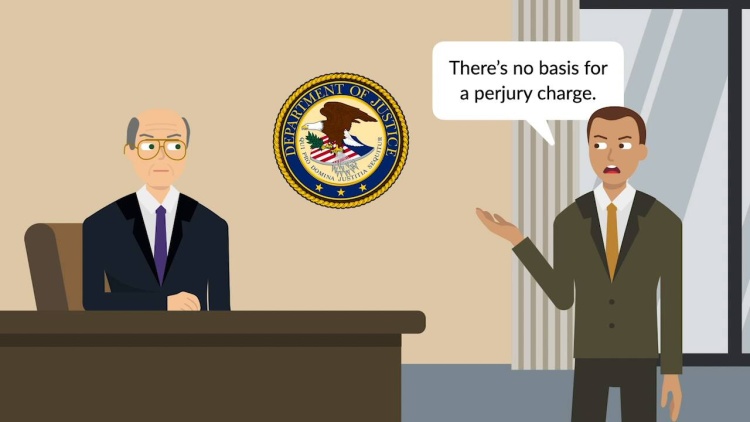United States v. Cox
United States Court of Appeals for the Fifth Circuit
342 F.2d 167 (1965) (en banc)

- Written by Josh Lee, JD
Facts
Goff and Kendrick, both African Americans, testified in a lawsuit against Ramsey, a voting registrar in Mississippi. Goff and Kendrick testified that Ramsey had refused to register them as voters but had registered white persons. Ramsey testified that he had never discriminated against black voter-registration applicants. Judge W. Harold Cox concluded that Goff and Kendrick should be charged with perjury. Soon thereafter, the Department of Justice (DOJ) requested that the Federal Bureau of Investigation (FBI) investigate the potential perjury. The FBI did so and concluded there were no grounds for the perjury charge, a decision that the FBI confirmed after review. A U.S. attorney, Robert E. Hauberg, and the acting attorney general of the United States, Nicholas Katzenbach (defendants), informed Judge Cox of the FBI’s conclusion. However, Judge Cox ordered Hauberg to present the case to a grand jury. When a state grand jury indicted Goff and Kendrick for perjury, the DOJ obtained an injunction prohibiting prosecution. Nevertheless, Judge Cox allowed a federal grand jury to hear the perjury case, and another indictment was returned. Judge Cox ordered Hauberg to prepare and sign the indictments, which Hauberg refused under Katzenbach’s direction. According to Rule 7 of the Federal Rules of Criminal Procedure, a valid indictment must be signed by a U.S. attorney. Judge Cox found Hauberg guilty of contempt of court and directed Katzenbach to show that Katzenbach should not also be found guilty of contempt. Hauberg, Katzenbach, and the DOJ appealed.
Rule of Law
Issue
Holding and Reasoning (Jones, J.)
Concurrence (Wisdom, J.)
Concurrence/Dissent (Rives, J.)
What to do next…
Here's why 907,000 law students have relied on our case briefs:
- Written by law professors and practitioners, not other law students. 47,100 briefs, keyed to 996 casebooks. Top-notch customer support.
- The right amount of information, includes the facts, issues, rule of law, holding and reasoning, and any concurrences and dissents.
- Access in your classes, works on your mobile and tablet. Massive library of related video lessons and high quality multiple-choice questions.
- Easy to use, uniform format for every case brief. Written in plain English, not in legalese. Our briefs summarize and simplify; they don’t just repeat the court’s language.





